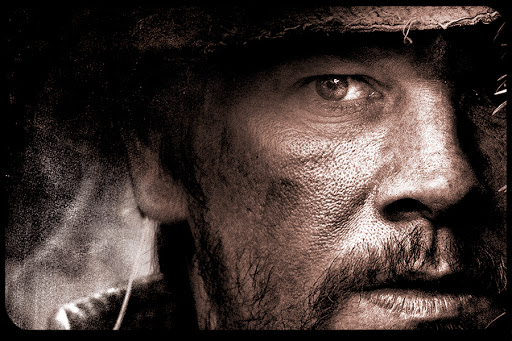A saint, legend has it, once fell down off her donkey face-first into a mud puddle. With the wind knocked out of her, she looked up into the heavens and grumbled: “If this is how you treat your friends, no wonder you have so few!”
Burn! But she had a good point: bad things happen to bad people, good things to good people. Isn’t that how the world is supposed to work?
In Peter Berg’s new adaption of Lone Survivor, a group of Navy SEALs ask themselves this very question after making a critical moral decision in the heat of battle. Mark Wahlberg (who also shares production credit) plays Marcus Luttrell, the real-life retired officer who wrote the 2009 best-seller of the same name. Fellow soldiers Emile Hirsch, Ben Foster, and Taylor Kitsch are – well, kitsch – and the performances are really nothing to write home about.
But something crucial is conveyed with great pathos, especially in the montages that open and close the film: these men – living, breathing men with families and homes and stories – are in a strange and hostile land, laying everything on the line day in and day out. And as Luttrell’s team departs for Operation Redwing, a mission in the mountains of Afghanistan’s Kunar province to locate and neutralize key Taliban combatants, we know – if only from the title – that their lives hang in the balance.
When the SEALs come face-to-face with a pair of goat herders clutching radios during the mission, panic sets in. Are they harmless village people or dangerous informants? Should they execute them and proceed with the mission, or let them go, endangering not only the mission, but themselves?
The SEALs tie up the two men and deliberate. A few argue that they have to play it safe and assume the worst, but Luttrell insists that they let them go. The team leader agrees, and the soldiers instantly comply with the order.
Instantly, the thick air of regret and fear descends. Did they do the right thing or the stupid thing? Were they merciful or reckless? Legal or just plain suicidal?
In no time, the goat herders inform the Taliban of the team’s location, and the men are met with a barrage of gunfire and RPGs. A bad situation is made worse by cascading events: they climb to a false summit, suffer a series of a violent falls down the mountainside, and try desperately to concoct some workaround to communication and travel breakdowns.
Luttrell jokes (or confesses) that he clearly made the wrong choice, but still insists that God is looking out for them. “If God’s looking out for us,” the team leader Michael Murphy responds, “I’d hate to see him pissed.” (Wahlberg, a Catholic who attends mass daily, was doubtless attracted to this back-and-forth.)
Needless to say, the workarounds fail, and the men die slow, brutal deaths one by one. Luttrell survives (though, as he explains at the end of the film, his survival feels almost illusory).
Curiously, a large part of Luttrell’s luck is due to Pashtun villagers – local Afghanis who house, feed, and protect him from the Taliban combatants. Following an ancient code called Pashtunwali, which prizes mercy and the asylum of guests from their enemies (a startling contrast with the brutality of the Taliban), these villagers elicit a paranoid chorus from the badly injured and justifiably wary soldier: “Why do you help me?”
Through all of this,Lone Survivor offers an action-packed look into the chaos and trauma of the war in Afghanistan. My brother, a veteran who served in Afghanistan, notes that the film takes great strides toward realism in its depiction of the terrain and firefights, and that Luttrell was on-board as an advisor throughout the production. “We checked all the Hollywood (crap) at the door,”
Wahlberg says, “and were completely at the mercy of the SEALs and Marcus."
But more importantly,Lone Survivor also glimpses the realism of moral and spiritual truth – a kind of battle within the battle.
We watch a group of men act with mercy on potential enemies, and most of them pay for it with their lives; the Pashtun people likewise risk their own security and peace for a stranger, with no promise of compensation. In both cases, we see people choosing what’s good and just for its own sake, learning in very short order that the moral way is a difficult and sometimes even deadly path.
But what about when our moral choices are seen against the horizon of the supreme good? What about when we open ourselves up to an assent (and ascent) to God?
The same rule, embedded in its source, is only amplified. Fanfare, success, even survival… none of this is the birthright of the belief that God is looking out for us. Not this side of the grave.
On the contrary, Murphy’s quip in the heat of combat – like that mystic’s cry from the mud – reflect the wisdom of Sirach: “My child, when you come to serve the Lord, prepare yourself for trials … for in fire gold is tested, and the chosen, in the crucible of humiliation.”

